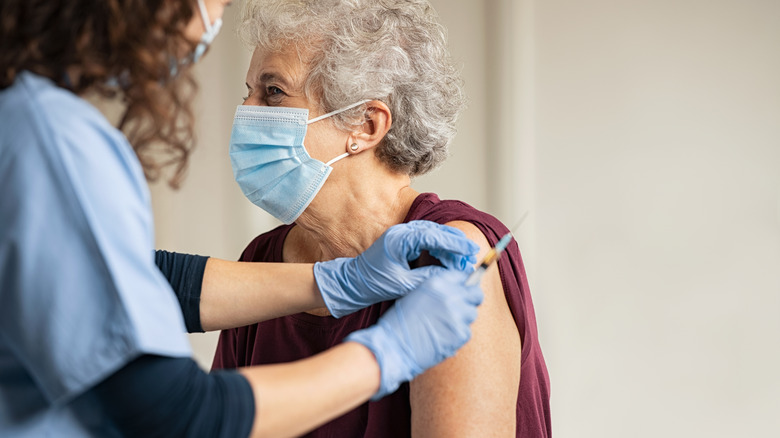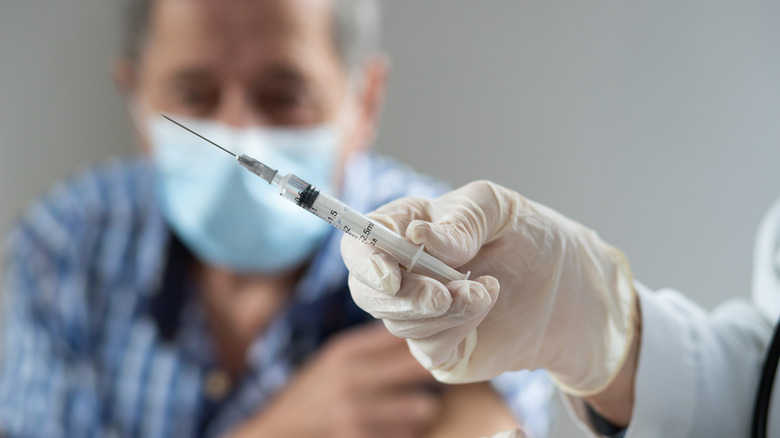New Research Sheds Light On Breakthrough Cases Of COVID-19
Vaccination is by far the most effective way to avoid contracting or suffering severe symptoms from COVID-19. According to new data published by the Centers for Disease Control and Prevention (CDC), fully vaccinated people are less than one-sixth as likely as unvaccinated people to test positive for COVID-19, and are eleven times less likely to die from the virus.
"The No. 1 take-home message is that these vaccines are still working," Dr. David Dowdy, epidemiologist at the Johns Hopkins Bloomberg School of Public Health, told The New York Times. "If you saw these data for any disease other than Covid, what everyone's eyes would be drawn to is the difference between the unvaccinated and fully vaccinated lines."
That being said, some demographics are more vulnerable than others to breakthrough cases and deaths, and experts believe that these trends are important for Americans to consider as they decide whether to get a booster shot.
These groups are more vulnerable to severe breakthrough cases
Since the beginning of the pandemic, we have known that age is a major risk factor for severe illness and death from COVID-19. It turns out that although fully vaccinated people over the age of 80 are much less likely to die of COVID-19 than unvaccinated people their age, they are still more likely to die from the virus than unvaccinated people under the age of 50. CDC epidemiologist Heather Scobie told The New York Times that this may be due to older people's weaker immune systems that typically don't build as strong of a response to vaccination, but that hopefully this could be resolved with booster shots.
This is consistent with data from a Yale study published in September that found that people who experience breakthrough hospitalizations and deaths tend to be older, with preexisting conditions such as diabetes and heart disease. People on immunosuppressive drugs are also more vulnerable.
While breakthrough cases and deaths are rare across recipients of all three vaccines in the United States, people who received Johnson & Johnson are slightly more likely to experience breakthrough cases and deaths. This is part of why all adults who received Johnson & Johnson are now encouraged to get booster shots at least two months after their first dose, while booster recommendations for Pfizer and Moderna are primarily focused on recipients who belong to high-risk groups (per CDC).


